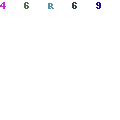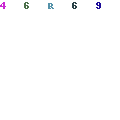Speaking of ethics – ethics speakers to speak
When it comes to taking ethics from the classroom to a professional field, the connection is often dropped, according to one professor at SIUE’s College of Arts and Sciences (CAS). Alison Reiheld, assistant professor of philosophy, plans on fixing that for a variety of students at SIUE through a speaker series this academic year.

Alison Reiheld (left center) stands with panel presenters from "The Crooked Timber of Humanity." Reiheld plans to build on the success of last year's panel discussion.
Reiheld, who’s area of expertise in terms of research is ethics in the medical community, has long been interested in extending ethics knowledge beyond the courses in which it is taught. She stated ethics is often viewed as a course that gets checked off on a transcript.
“There is a well-known phenomenon in the medical ethics education literature that students, who just get a three-month course in medical ethics at some point in medical school, don’t see their mentors–when they are doing clinical rounds–using those same concepts and same terminology [they learned in class] and they don’t see that coming up in other courses when cases are discussed. Those students come to see that medical ethics is not that important,” said Reiheld. “It is a stand-alone skill that you learn once and never have to worry about it again, like a box you check rather than something you need to maintain.”
The Philosophy Department in CAS makes important contributions to other schools in SIUE, such as the School of Nursing, by offering service courses such as medical ethics and engineering ethics. Reiheld stated that she conceived of the series to enhance Ethics Across the Curriculum. It is designed to help both students who have and have not taken medical ethics. Reiheld stated it would also help those students who are not able to take the medical ethics courses and end up taken the much broader general ethics course.
Reiheld stated that she is building on the panel discussion that was held last called “The Crooked Timber of Humanity” in which a panel discussed issues in disabilities. The lecture hall where the discussion was held was full, and Reiheld realized that there was buy-in from many different areas of CAS.
This year’s speaker series will be a bigger undertaking. Reiheld applied for and received a grant from Excellence in Undergraduate Education (EUE) for nearly $6,000. She stated that this would help bring bigger names in the field, as she will be able to provide a speaker’s fee and pay for travel expenses.
The series is entitled “Medicine in Action: A Bio-Ethics Speaker Series.” Reiheld said that this series will focus on clinical ethics which is a small subsection of bio ethics.
“Bio ethics broadly includes not just only human medicine, buy also animal experimentation, the genetic modification of food plants–should we create organisms that contain genes from multiple species, both animal and plant or different animal species like goldfish that fluoresce because they have squid proteins in them,” said Reiheld. “This [series] is specifically the subsection of bio-ethics that is pertaining to clinical medicine. There is a lot more even in medical ethics than that, but we’re looking for this idea that the part of ethics that’s is useful and important in your profession extends beyond the classroom.”
Reiheld hopes that the series will invite students from across the various fields of study at SIUE to participate in a discussion that should impress them with the need to consider ethics throughout their future careers.
“What I am asking [the speakers] to do is always bring in some element of clinical ethics so that it is useful in terms of what does this mean for my practice, how does this help me be a better nurse, a better dentist, or physician? What does this teach me in terms of concepts that I can use elsewhere even if I’m never going to directly have this kind of case?” said Reiheld.
She stated she will approach CAS professors, the School of Nursing, the School of Engineering, as well as the School of Pharmacy. Although the grant is funded by EUE, Reiheld sees that other areas may be interested in the topics.
“Even though it is through EUE, which is for undergraduate education, there are people pursuing their Pharm.D. who may be interested in some of these topics, especially with respect to informed consent and refusal,” said Reiheld. “[Our] first speaker will be talking about the ethical and legal implications of using medications to alter memory. It could be very interesting to pharmacy students who are thinking about the uses to which the [drugs] they dispense could be put that are off-label uses.”
Reiheld stated that the first speaker is scheduled for October 28, 2011. The speaker will be Rory Kraft from York College of Pennsylvania who will present and lead discussion on “Troubling Consent: Patients, Parents, and the Right to Consent.”
“That’s one of the cases that I wanted our first speaker to talk about because it challenges what you think you know about informed consent and refusal and the limits of the patient’s right to talk about that,” said Reiheld. “we talk in every version of these courses about this basic idea of informed consent and refusal. But, not every professor who teaches [the course] talks about whether or not pediatric patients are allowed to refuse live saving treatment, ever, and under what circumstances that it might be respected or even taken into account, much less just completely ignored by clinical staff and parents.”
Each section will last one and a half hours. Even though the speakers will be presenting on their area of expertise, Reiheld stated that she has asked them to prepare only a 45 minute presentation. She stated that during the remaining time, she has asked the presenters to engage in a dialogue with the audience. The speakers have been asked to throw out discussion questions and scenarios to push a dialogue rather than a simple question and answer session.
“The goal is to get people a chance to do ethics, outside the classroom– clinical ethics, medical ethics–outside of the classroom, to really do it, not just receive it passively, to keep these skills going,” said Reiheld.
Filed Under: Biological Sciences • Chemistry • Environmental Sciences • Mathematics & Statistics • Philosophy • Political Science • Religious Studies • Social Work • Sociology & Criminal Justice













